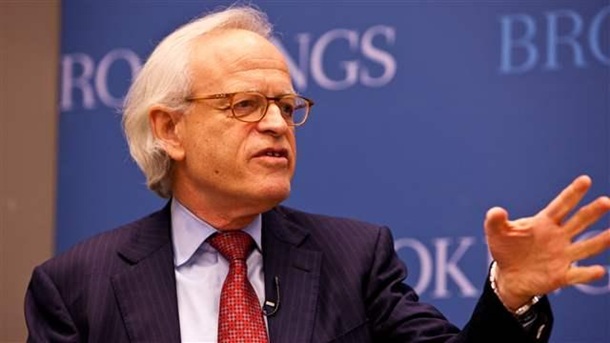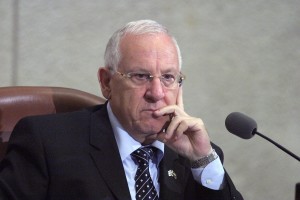by Mitchell Plitnick
The ongoing spat between Israeli Prime Minister Benjamin Netanyahu and United States President Barack Obama has drowned out an important issue. The entire question of the Israel-Palestine conflict seems to be out of sight and out of mind in Washington and the mainstream media. Instead, the focus has been on diplomatic protocols: on what the United States is or is not willing to concede to Iran in talks, on whether Israel can be trusted with sensitive updates on those talks, and on whether issuing renewed sanctions against Iran is a foolish idea.
Traditionally, the United States and the international community in general don’t even try to push peace in Israel’s direction when the Jewish state is in the midst of electoral campaign season. That’s what is happening now as well, despite the drama stirred up by Bibi and his congressional cohorts John Boehner (R-OH) and Mitch McConnell (R-KY). Staying out of Israeli elections is conventional wisdom, but is it the right move now?
A new report issued yesterday strongly suggests otherwise. It’s written by Michael Cohen, a fellow at the Century Foundation, and Matthew Duss, president of the Foundation for Middle East Peace (full disclosure, I work with Matt at FMEP, where I am the program director). Titled The United States and Israel at a Crossroads, the report is based on some polling recently done in Israel to gauge the Israeli public’s responses to various steps the United States might take to move the peace process forward, as well as direct conversations with a number of Israeli, Palestinian, and U.S. leaders.
The Concerns of Israelis
Unsurprisingly, Israelis are skittish about any U.S. interference in their internal politics. Leaving aside the irony of that sentiment in light of recent events, Israelis do still understand that they need U.S. support. They also understand, based on the polling data, that their own government’s policies are putting the United States in an increasingly difficult position. Furthermore, they are open to Washington pursuing certain actions, particularly regarding settlements.
From these data, Duss and Cohen gauge what might be both practical and politically feasible and make the following recommendations:
- Make clear that while the United States remains committed to Israel’s genuine security requirements and right to defend itself, it will cease to expend significant diplomatic capital to protect Israel from international actions against Israeli policies that are contrary to U.S. positions, such as settlement expansion.
- Once again publicly refer to settlements as “illegal” rather than the current “illegitimate.” While the final disposition of the settlements will be determined by negotiations, until that time it remains the legal opinion of the U.S. State Department that they are a violation of the Fourth Geneva Convention, and this should be stated clearly by U.S. spokespersons.
- Offer support for a United Nations Security Council resolution that condemns Israel’s policy of settlement construction, particularly those outside the major settlement blocs.
- Work with its partners to produce a UN Security Council resolution setting clear terms of reference for negotiations, similar to those articulated by President Obama himself in his May 2011 speech at the State Department.
- Announce plans to more closely scrutinize the tax-exempt status of U.S. organizations that support the settlement enterprise in East Jerusalem and the West Bank to ensure that these activities do not violate U.S. laws and guidelines for charitable contributions and tax-exempt purposes.
- Publicly present the framework of a final status agreement that would lead to the creation of two states for two peoples along the lines of the Clinton Parameters. This framework would take into account Israel’s legitimate security concerns and would include recognition of Israel by the Arab League, per the Arab Peace Initiative.
These ideas are sure to strike many as modest, even as they send chills up the spines of some of the Netanyahu government’s most strident supporters, especially among the small, but influential minority of right-wing U.S. Jews and the larger cadre of so-called “Christian Zionists.” Only a few short years ago, they would also have been dismissed as wholly unrealistic. Things have changed.
Many will focus on the mutual loathing between Netanyahu and Obama to explain that change. But the cause is really more basic than that. Despite the jingoistic political rhetoric, embraced so tightly by Obama and Vice President Joe Biden, that there is “no daylight” between Israeli and U.S. policies, there has in fact always been such daylight. Events in the Middle East and, more importantly, domestic politics in both Israel and the United States have increased the gap in recent years. Although the fissures are still not visible in Congress on the Palestinian question, they can be seen just about everywhere else.
A Shifting Consensus
No doubt, readers out there will have their own ideas about what they’d recommend to Obama. But what is particularly striking about these ideas is that they are all politically viable. That is not to say they would not be opposed, even by some prominent Democrats. But neither would they be the kind of political poison they were a few years ago.
In 2015, a liberal hawk like Bill Maher can be heard to say that “…we’re getting very close on the Iran issue to allowing Israel to write American policy,” and it hardly causes a murmur in response. John Kerry betrays his true views of Israel’s Gaza assault when a camera catches him sarcastically grumbling “it’s a hell of a pinpoint operation,” in reference to Israel’s wildly disproportionate assault on the Strip.
Perhaps most significantly, former U.S. Ambassador to Israel, Martin Indyk, speaking at the annual conference of the Institute for National Security Studies in Tel Aviv, warned the Israelis that if a genuine effort for reviving a peace process was not made after the election, “’international actions’ [would be] pursued not by the Palestinians, but rather by the international community ‘in terms of a Security Council resolution’ to ‘lay out and preserve the principles of a two state solution in the future.’”
That’s a pretty strong indication that the Obama administration’s thinking is similar to that of Cohen and Duss, and that the White House is seriously considering crafting something in the Security Council that would spell out international expectations of Israel and the Palestinians for the ultimate resolution of this conflict. It would be an unprecedented step, and not an easy one. Surely Russia and China would have a different view than France and Great Britain, let alone the United States of how such a document should look. And that’s before we even consider the non-permanent members of the Council.
Still, just the fact that such an idea is even floating around policy circles in Washington, and even at the White House, is remarkable. No doubt, if Obama were to take such steps, members of Congress from both sides of the aisle would oppose him, and there would be a loud outcry from various sectors. But the polling data on which Cohen and Duss based their report shows that significant numbers of Israelis are worried about precisely such outcomes. Strong minorities, and in some cases majorities, would place the blame for such actions on the Israeli, rather than the U.S. government.
More research is surely needed, but the polling done for this report raises some interesting possibilities. Let’s keep in mind that these questions were being asked while Israelis are still relatively certain that the United States will have their back, not only in the military sense, but also in terms of boycotts and other forms of international isolation. Yet, of the six policy recommendations listed above, the one Indyk is warning Israelis about is perhaps the harshest measure.
It has long been my belief that if the United States should take such recommended actions, this would be more than sufficient to convince the majority of Israelis, in and out of government, to push for a change in their policies regarding the occupation and Palestinian rights. Despite Israel’s sharp right turn, I still believe that. There has never been a better time to put it to the test.
Photo: Martin Indyk making a point






Good post, with that said, we’ll see what happens next month? Who knows, Netanyahoo might end up losing the election, the American Congress offering him a job, (he does have dual citizenship, doesn’t he?), then heaven help us. How did we ever get into this mess?
Considering the fact that 95% of the population of Israel supported the last Gaza war, and many are even critical of Netanyahu for “not going far enough” in Gaza – it’s really hard for me to believe that what Martin Indyk is saying is resonating with anybody in Tel Aviv today. My understanding is that, incredibly, most Israelis feel that they are the ones being attacked and victimized by Hamas/Palestinians and not the other way around. The majority of Israelis don’t even understand the extent of the brutality of the Gaza slaughter, because that information is censored in Israel – though for the rest of the world, it’s all over the news and social media websites like Twitter and FB in Europe. Increasingly, accurate information and ME coverage is even becoming available here in the US, in independent news venues. The New York Times’ heavily biased, hegemonic control of the narrative is starting to crumble. I do believe that the Internet will become the tipping point that will finally make real change possible, and really it couldn’t come soon enough. There is an ocean sized gap in perspective and opposing narratives that must be resolved for progress in the “peace process” to occur.
I think the Duss & Cohen report seems very forward thinking in a good way, but some it a bit Pie In the Sky at this point in time. Of their recommendations, points 1, 4 and 5 seem reasonable, but even so would be a challenge to implement. Point 2 made me kind of laugh, because the nomenclature surrounding the settlements is so varied and contentious – “illegal” is in fact the correct designation and progress would result from calling a spade a spade, but meanwhile various parties continue to refer to the settlements as “illegitimate,” or “disputed,” or according to the settlers, just plain “Judea and Samaria.” Ha ha. Language is a powerful tool.
Point 3, as phrased above, indicates support for freezing further land grabs and settlement constructions, but not reversing them. And the problem is, not only that there’s not that much land left, but that the new settlements are effectively encircling remaining Palestinian lands and cutting off the Palestinian borders to Jordan. How could a Palestinian state exist as an isolated island in the middle of Israel? It seems untenable to me.
And point 6 — well, wouldn’t it be great if that could happen? Wouldn’t it? And good for Israel as well, because a single bi-national state would be a bloody nightmare. But – good luck making the short sighted powers that be in Israel understand that simple truth.
Israel has become too greedy, entitled and self destructive. And American support enables that self destructive behavior. It’s a dysfunctional co-dependent relationship in desperate need of re-evaluation and restructuring. I really pray President Obama is able to make some progress as his term winds down, for the sake of America, Israel and Palestine.
Thanks for your article Mitchell Plitnick.
I was intrigued by Netanyahu’s offer of sanctuary in Israel for European Jews. Statistically they must beat greater risk there than in any European country. Is he thinking of defeating the Palestinians by outnumbering them thru immigration? Seems to be no end to the tricks he is prepared to try before considering any of the sensible options……..
@ Mike Kearney – Arab Israelis are considered “demographic threats” by many Jewish Israelis invested in maintaining the “Jewish character” of the Jewish State by maintaining a Jewish majority population. If you are interested, read Max Blumenthal’s “Goliath” for a thorough discussion of what this means.
There is a political dimension to Netanyahu’s “offer of sanctuary” as well which is to reinforce the idea in European Jewry that Israel is its real home and therefore European Jewry should be invested in Israel’s interests and well being. It is about Jews self-identifying as eternal citizens of Israel no matter where they live, and branding Israel as being something integral to what it means to be Jewish. Of course none of that is true. It’s just a big hoax being perpetrated on an unsuspecting, credulous people by a wily manipulator.
And yes, it’s kind of laughable that Netanyahu posits Israel as such a safe haven for Jews, given the reality on the ground. You are correct.
No, it won’t take a new turn. Israel is bent upon occupying all of Palestine.